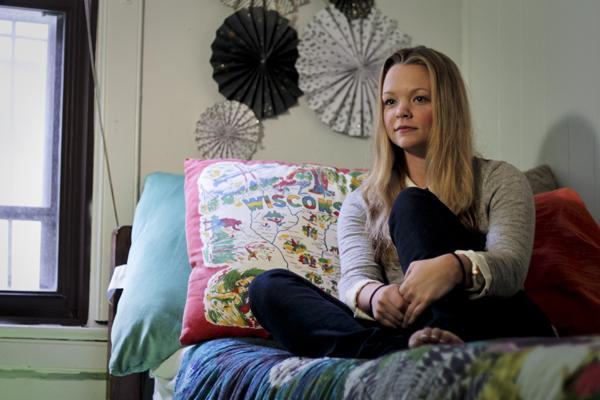When Wisconsin native Tess Pawlisch moved into Somers Hall last year, her parents couldn’t afford to make the trip to D.C. to help her unpack her clothing and make her bed for the first time.
A year later, the sophomore international affairs major said it’s still hard for her parents to picture her daily life at school because they’ve never seen the campus.
“Some things get lost in translation, and I would really just love for them to be able to come out here and see,” she said. “Having family out here would mean so much to so many kids because that’s their support system.”
But Pawlisch’s family and dozens of others may get a chance to visit next year with some help from the Office of Parent Services, which announced this fall that it is developing a grant program to bring parents to GW for events like Colonials Weekend and Colonial Inauguration.
The fund would help erase one of the most subtle components of campus class divisions: whether or not students on opposite sides of GW’s wide socioeconomic gap get a visit from mom and dad.
Though the project is just getting under way, Rodney Johnson, the head of GW’s parents office, said he hopes to give out the travel grants by next year. He said he didn’t know of any other schools with that type of fund.
The University’s fundraising office has yet to decide how much it aims to raise for the fund, which would go into a longstanding endowment, he said.
“We want to make it so that if a parent calls us and says, ‘We want to come to CI, but we don’t have the money to pay for housing,’ or ‘We want to come to Colonials Weekend,’ we have a fund,” Johnson said.
GW has recently sharpened its focus on retaining students year-to-year. Lower-income students and students who feel disconnected to universities are historically less likely to complete their degree.
The University has seen an increasing number of students receiving Pell Grants, or federal awards offered to students whose family incomes are typically less than $50,000. But it remains among the 30 least socioeconomically diverse private colleges in the nation, according to a 2013 report by the nonprofit New America Foundation.
The neediest students at GW, whose parents make less than $30,000 a year, pay an average tuition of $15,000, the study found, while student loan borrowers from GW take on a debt load of about $33,000.
About 14 percent of GW students receive Pell Grants, one of the lowest rates in the country, according to the study.
Dean of Student Affairs Peter Konwerski said the program will be crucial to GW’s efforts to more strongly link students and their parents to the University.
“We want parents to feel like there’s a connection to GW. One way is through Skype or through video. The other way is from them coming to experience what GW is like,” Konwerski said.
California native Regina del Carmen said her parents fly out every year to help move her in. But the junior said the yearly visit, which they plan about eight months in advance, is not enough.
“They can see the environment that I’m living in, the school. When they’re here, it’s really nice,” del Carmen, a speech and hearing sciences major, said. “They can get a better idea of what my school experience is like.”
GW has increased its focus on parent outreach this fall, with the office also reaching out to international parents to help them overcome language and cultural barriers. Officials are working to add webinars to inform them about everything from dining plans to counseling services.
The University already helps low-income students come to campus for tours and information sessions through the Ron Howard Student Assistance Fund, an endowment that was created in 1997.
Clara Mora, a junior from Orange County, Calif., said her mom visited campus only when moving her in freshman year because the long flights can cost more than about $400 each way. She said she misses the visits during Colonials Weekend when many of her peers bring their families to campus.
“It’s difficult when you’re surrounded by your roommates and friends and their parents are all here. It would be nice if my parents could be part of that, too,” Mora said.
She added that it’s tougher for her family to understand how much she has grown up in college because they haven’t been around to see it.
“Because they’ve never seen how I live, I’m sure they don’t understand how I function as an adult in this city,” she said.
This post was updated on Oct. 14, 2013 to reflect the following:
Correction appended
The Hatchet reported the incorrect title for Peter Konwerski. He is the dean of student affairs, not the senior associate dean of students.







